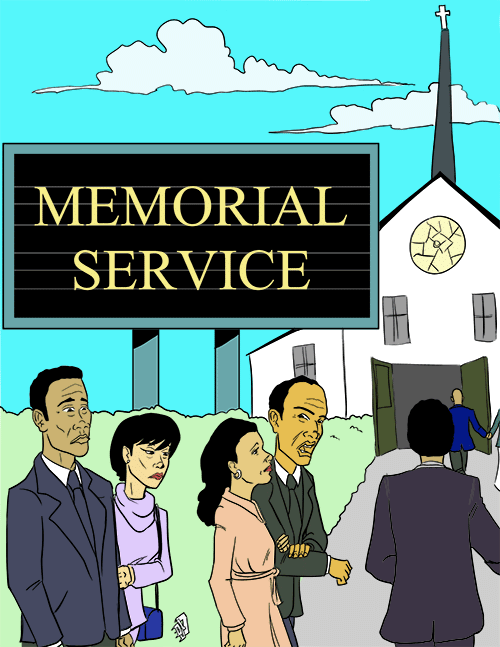
Memorial services are rarely festive events, but the recent celebration of the life of Barbara Clark Elam seemed especially solemn. Even though she had been incapacitated for some time by the throes of Alzheimer’s, her death marked the end of an era when the role of community elders was significant. As Rev. Julien Cook preached allegorically in his sermon, “With the loss of an elder we lose the book.”
St. Mark Church was appropriately the site of the service. St. Mark had been the village square for the Elams, the Clarks and numerous other families committed to progress. As a professional librarian, Barbara encouraged St. Mark youngsters to develop a love for books. Facility with language opened the world of literature and history to the children while elders encouraged them to achieve academically.
Achievement was expected. Barbara became an administrator of Boston Public School libraries. Her husband Harry Elam became the first black chief justice of the Boston Municipal Court and was later appointed to the Superior Court in 1983. Their children also were achievers. Their daughter Tricia Walker is a writer, lawyer and educator. Harry Elam Jr. is vice provost for undergraduate education and vice president of the arts at Stanford University, and their daughter Jocelyn Perron is a bilingual preschool teacher in Prince George’s County, Maryland.
Judge Elam’s siblings were also very talented. His sister Harriet Elam-Thomas graduated from Simmons College and Tufts University and became a career diplomat in the U.S. State Department. She was the U.S. Ambassador to Senegal and has held other high diplomatic positions; she also is a professor at the University of Central Florida.
It has been said that it takes a village to raise a child. St. Mark’s Church was indeed an ecclesiastical village in Roxbury that functioned effectively. One of the elements of its success is grounded in respect for elders, a concept that is now declining.
America’s fixation on youth and youth culture has diminished the value of the judgment and wisdom that elders customarily provide. It is not enough for an elder merely to age gracefully. One must have shown a profound commitment to the welfare of the community and earned the respect of others.
Harry and Barbara Elam were so well regarded that in the best of times they could enjoy the respect of the community, even during a period of declining awareness for the importance of elders. It was difficult during Barbara’s memorial service to avoid plaintive thoughts of those elders who served and left in relative anonymity.
Tom Brown, a Brown University alumnus, spent his whole professional career as the founder and CEO of Jobs Clearing House, an organization to provide managerial and administrative jobs for African Americans. Tom left quietly four years ago, without fanfare.
Sam Perry, a 1941 alumnus of Boston Latin School, spent decades of his life providing low cost or free tutoring to black students trying to enter upscale prep schools or colleges. He left us with scant notice.
Charles Steward, William Monroe Trotter’s brother-in-law and Harvard alumnus, class of 1896, kept the spirit of the Boston Guardian alive until he passed away in 1967. Few were there to mourn the last of the so called Boston Radicals.
In failing to extoll the heroic deeds of our elders, we indeed “lose the book” as Rev. Cook proclaimed, and with it a significant loss of our own history.






